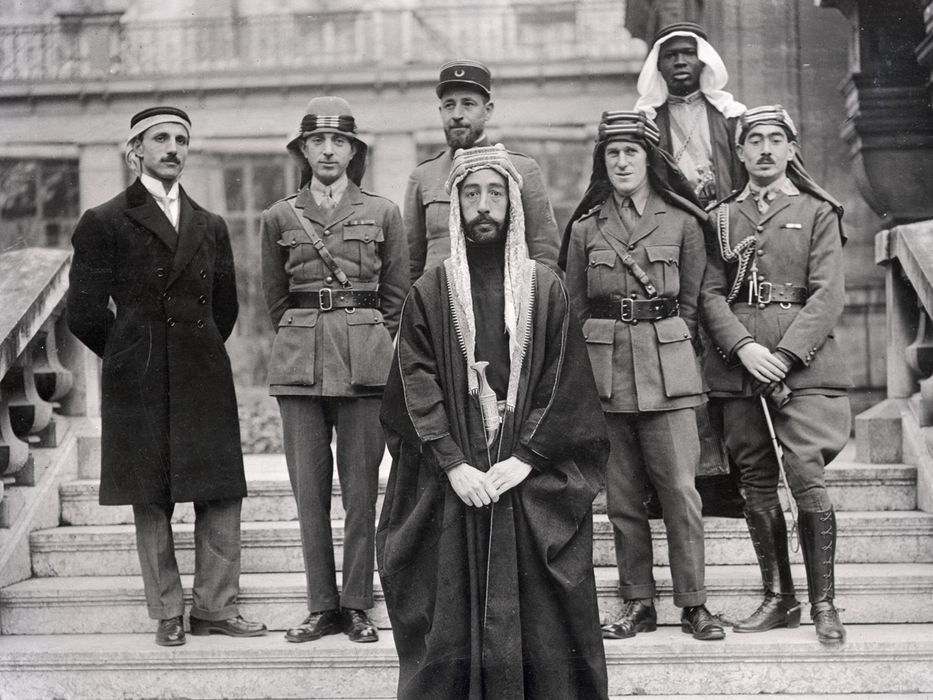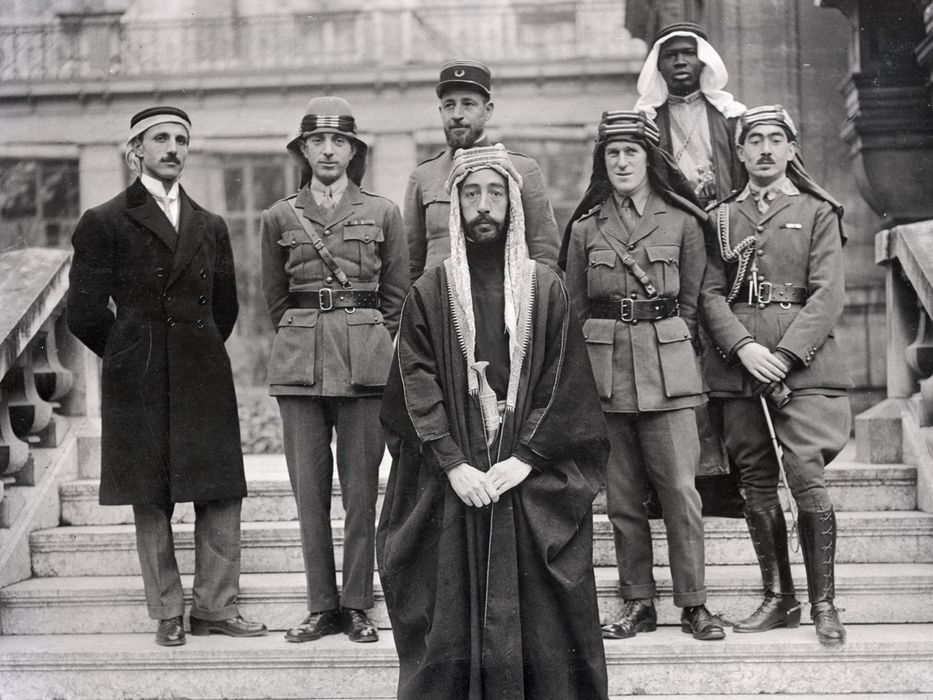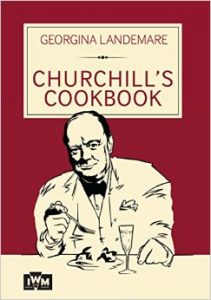Finest Hour 169
Defending Lawrence

November 10, 2015
Finest Hour 169, Summer 2015
Page 50
 T. E. Lawrence (third from right) stands with Emir Faisal of Iraq (center) at the 1919 Paris Peace ConferenceWhile researching a forthcoming volume of correspondence, Jeremy Wilson, the authorized biographer of Lawrence of Arabia, was able to document the following story.
T. E. Lawrence (third from right) stands with Emir Faisal of Iraq (center) at the 1919 Paris Peace ConferenceWhile researching a forthcoming volume of correspondence, Jeremy Wilson, the authorized biographer of Lawrence of Arabia, was able to document the following story.
In 1954 Sir Basil Blackwell (the Oxford bookseller and publisher, 1889–1984) published The Home Letters of T. E. Lawrence and His Brothers. The project was the idea of Lawrence’s elder brother Bob and his mother, who wished to include as an introduction Churchill’s 1936 speech at the unveiling of the T. E. Lawrence memorial at the City of Oxford High School for Boys.
When I met Sir Basil, in about 1969, he gave me a copy of the book and told me about his negotiations for permission to include Churchill’s speech. Churchill was again Prime Minister at the time, and Blackwell wrote asking not just for permission to reprint the speech, but also if possible for some kind of prefatory note.
On 21 February 1954, Churchill’s secretary, Jane Portal, wrote to Blackwell agreeing to use of the speech. She added “With regard to the paragraph you suggest ‘introducing’ the tribute; it would be most helpful if you could send a draft of what you would think suitable, with what Sir Winston said on that occasion and he can then alter it if necessary and also sign it.”
Blackwell was surprised, but did his best in a brief note to mimic Churchill’s oratory style. He sent the requested draft with a covering letter to Miss Portal on 23 February. Shortly afterwards, he received back what he found to be almost exactly his draft, typed out on Downing Street notepaper and signed by the Prime Minister. The only difference between Blackwell’s draft and the version signed by Churchill and printed in The Home Letters is that WSC omitted a seven-word adaptation of a Shakespeare quote that Blackwell had put at the end.
Blackwell printed the letter in facsimile, leaving readers (except Blackwell!) in no doubt about its authenticity. Later, Blackwell realised that Churchill had, at the time, been struggling to keep abreast of his tasks as Prime Minister—but that the British public were unaware of this.
I found copies of the exchange between Blackwell and Portal while researching the Lionel Curtis papers in the Bodleian Library and also came across copies of correspondence relating to this story. Of the original speech, Curtis wrote to Churchill on 21 February 1952: “I remember that as we drove down to the school you told me you had never before taken so much pains preparing a speech.”
There was a special reason for requesting the prefatory note, since there was a forthcoming attack on Lawrence by Richard Aldington (Lawrence of Arabia: A Biographical Enquiry). Blackwell felt that if Churchill added a note introducing his 1936 speech in which he stated that his view of Lawrence was unchanged, it would help preserve his friend’s reputation.
Jeremy Wilson and his wife are at work on the ninth volume to appear in the Castle Hill Press subscription edition of the correspondence of T. E. Lawrence.
Subscribe
WANT MORE?
Get the Churchill Bulletin delivered to your inbox once a month.





